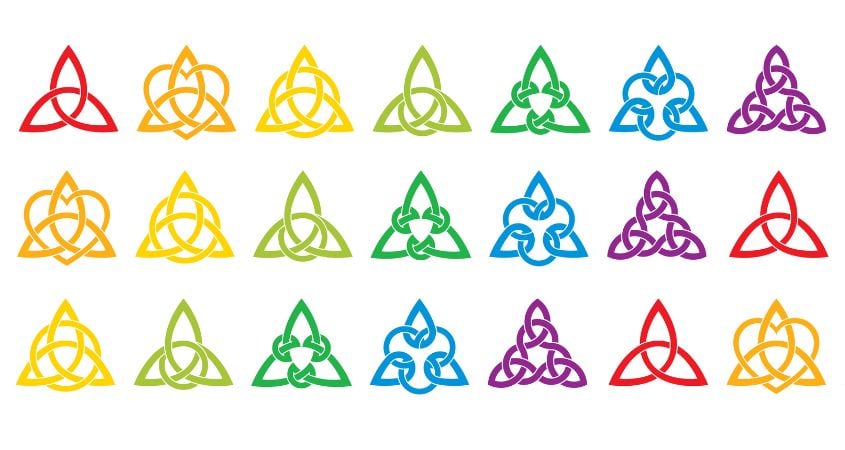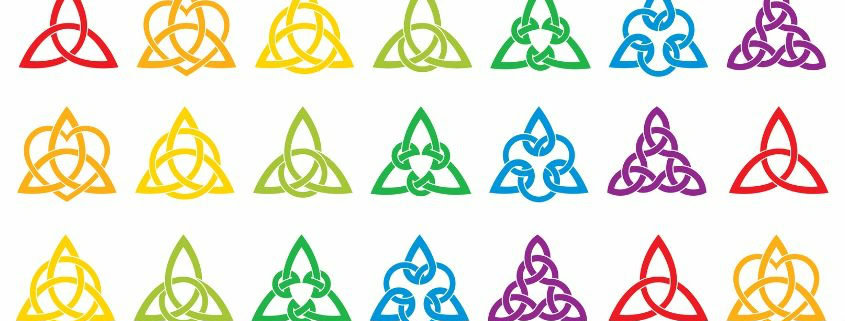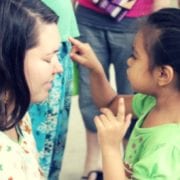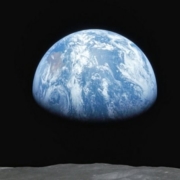Our Relational, Three-In-One God
BY KATIE LACZ | June 5, 2023
Sunday’s Readings
One of my favorite quotes about the Trinity comes from theologian Sandra Schneiders, I.H.M.: “God is not two men and a bird.”
We know this, of course. But our imaginations are done no favors when we see paintings of, well, two (usually white) men and a bird. Our religious vocabulary is stunted when our language is limited to a Trinity of “Father, Son, and Holy Spirit.” The mysteriousness and awesomeness of a triune, three-in-one God cannot be limited by one set of names. Moses recognizes the magnitude of this when he hides his face as God appears to him; even the name Moses uses, often transcribed YHWH, cannot easily be translated and is too special to be spoken outright. (In some strands of Jewish mysticism, it is described as the sound of breathing in and out.)
It feels appropriate that the celebration of the Trinity takes place on the first Sunday of Pride Month. The God in whose image we are all made is relational, fluid, called by many names. The God in whose image we are made sent the eternal Logos, Christ, into the world, enfleshed in a human body, to radically love the world. Not to condemn it. Given that, how could we be surprised to know that humankind has a plethora of identities, of names, of ways of loving? Queer theologians have pointed out that the Trinity is, itself, a queer concept. Presbyterian pastor Michele Ward writes: “The Trinity disrupts our hold on binaries by being three rather than two, by being a relationship that includes three persons rather than two persons. The Trinity represents the complexity of what it means to be made of pure connection without judgment or shame.”
Queer theologians have pointed out that the Trinity is, itself, a queer concept. Presbyterian pastor Michele Ward writes: “The Trinity disrupts our hold on binaries by being three rather than two, by being a relationship that includes three persons rather than two persons. The Trinity represents the complexity of what it means to be made of pure connection without judgment or shame.”
We can indeed be a stiff-necked people, unable or unwilling to see Trinitarian loving relationships in the glorious multitude of people existing in this world. But we are called, through St. Paul’s ancient formula that we still speak today, to grace, love, and fellowship. (Or, we could say, companionship.) Those things are only found when we act as a beloved community in which no one is excluded, in which we mend the inevitable ruptures that occur, and our encouragement of each other is sourced in the outpouring of love that animates our relational, three-in-one God.
For Reflection:
- What is your image of the Trinity? Is that image limiting or expansive?
- Can you find new or fresh language for the Trinity that deepens your experience of God?
- How can you act as part of the beloved community in which no one is excluded?
Katie Lacz is a mother, an M.Div., and a spiritual director living outside Boulder, CO. She currently works as Program Associate for the Women’s Ordination Conference. A former Jesuit Volunteer (Raleigh ’06-’07), she continues to seek the magis while living in the messy and beautiful work of raising her two small children.








